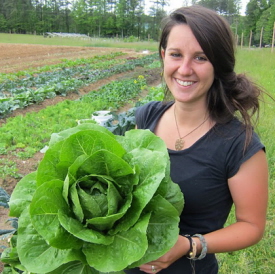
For universities such as Arizona State and Duke University, every day is Earth Day. ASU and Duke, among other top green schools, inspire students to participate in advanced sustainability coursework and sophisticated green practices. These two schools are just the top tier of a broader growth in sustainability studies offered at colleges and universities.
Arizona State University, Middlebury College, Cornell University, Duke University and Montana State University are widely recognized for offering a variety of environmental specializations. Areas such as sustainable urban dynamics, conservation biology, applied ecology, earth and ocean sciences and sustainable crop production are among the various types of green-disciplined college majors that students can study.
Arizona State University
The Global Institute of Sustainability at Arizona State University “advances research, education, and business practices for an urbanized world.” The Institute’s School of Sustainability focuses on training through coursework, research and outreach. Students studying the transdisciplinary degree programs in the School of Sustainability will study the global effects of environmental, economic and social issues.
Sustainability strategies are driven by the four cornerstones and broad-based themes of:
- Education
- Research
- Business Practices
- Global Partnerships and Transformation
The Global Institute of Sustainability coordinates and champions compelling sustainable initiatives, from identifying sustainability challenges and practical solutions to developing innovative tools and sustainable practices.
As a whole campus, ASU is the authority on sustainability. The following decorations identify ASU as one of the best green universities:
- Obtained the highest possible score in rating tallies by the Princeton Review’s 2013 Green Honor Roll
- Rated as one of the top 25 Coolest Schools and greenest college campuses by the Sierra Club magazine
- Earned a STARS gold rating from the Association for the Advancement of Sustainability
ASU upholds its exemplary green reputation with first-rate sustainability solutions such as:
- 10 megawatts dc (MWdc) solar-generating equipment installations
- LEED Silver (or higher) certifications on newly constructed buildings and facilities
- Recycling and waste reduction strategies
- A Sustainability Literacy Education interactive online program
- Certification programs for green offices and laboratories
Middlebury College
According to GreenReportCard.org, Middlebury College established the first environmental studies program in 1965 and continues to lead the green movement with sustainability research excellence and environmental expertise. In 2007, Middlebury College’s Bill McKibben and six students launched Step It Up, an environmental campaign dedicated to global warming and climate change. In addition to organizing climate change demonstrations across the nation, McKibben also leads the 350.org campaign, which is a global climate crisis movement. The mission of 350.org is to reduce “the amount of CO2 in the atmosphere from its current level of 392 parts per million to below 350 ppm,” which is the safe number to achieve “to avoid runaway climate change.”
Middlebury and its LEED Platinum Franklin Environmental Center at Hillcrest are celebrated for green achievements in carbon neutrality and renewable energy. With a goal of carbon neutrality by 2016, Middlebury is aggressively adopting renewable energy and energy conservation undertakings.
Middlebury projects include:
- The biomass gasification plant
- Growing willow shrubs testing
- Biofuels for heat and transport
- Upgrades in energy efficiency
- Wind power to produce electricity
- Sustainability landscape practices
- Climate activism
Cornell University
Cornell University’s College of Forestry was the nation’s first college that was dedicated to scientific forestry, and the university’s Department of Natural Resources continues to advocate ecological and social science advancements. From sustaining ecosystems and mitigating climate change to enhancing biodiversity and managing natural resources, the innovative sustainability efforts of Cornell make an impact locally, nationally and globally.
Cornell’s Department of Natural Resources offers various specializations including:
- Applied Ecology
- Resource Policy and Management
- Environmental Studies
- Ecology and Management of Landscapes
- Fish and Wildlife Biology and Management
- Human Dimensions of Natural Resources
The department’s conservation mission is the basis for the extensive research of ecological processes and biodiversity. Highly ranked for its superior environmental programs, Cornell conducts interdisciplinary research, such as conservation genetics and microbial ecology, to understand more about adversities such as globalization, urbanization and climate change.
Duke University

Duke University’s Nicholas School of the Environment and Earth Sciences is committed to “creating knowledge and global leaders for a sustainable future” by advocating “knowledge in the service of society.” The school’s vision is to create a more sustainable future by understanding the earth, the environment, humans and the relationships among the three.
The Nicholas School focuses on the following three environmental issues:
- Climate and Energy: Research the global climate system and its dependence on greenhouse gases and fossil-fuel infrastructures; avoid global warming with an emphasis on renewable and low-carbon energy sources
- Terrestrial and Marine Ecosystems: Understand natural resources, urbanization, climate change and biodiversity; seek solutions to prevent degrading ecosystems and shrinking habitats from worsening
- Human Health and the Environment: Research hazardous chemicals and toxic compounds that disrupt ecosystems and affect our health; identify how harmful compounds are released and exposed
Montana State University
Because of Montana State University’s Bozeman Agricultural Research and Teaching (BART) farm, MSU students studying Sustainable Food and Bioenergy Systems (SFBS) get first-hand research experience.
The Bachelor of Science degree focuses on the following three concentrations:
- Agroecology (Department of Land Resources and Environmental Sciences)
- Sustainable crop production (Department of Plant Science and Plant Pathology)
- Sustainable food systems (Department of Health and Human Development)
The goal of sustainable Food and Bioenergy Systems is to improve bioenergy developments, secure food systems and embrace farming methods that are ecological, economical and socially responsible. The basis of the program is the strong alliance of agriculture and health and human development to improve the food systems as well as market garden systems in Montana.
Student learning will focus on:
- Food and bioenergy systems and production
- Community supported agriculture
- Production practices
MSU News explains that the degree program opens up career opportunities in:
- Food safety
- Agricultural biosecurity
- Rural economic decline and poverty
- Obesity
- Loss of indigenous foods
- Bioenergy production and improvement
Career Opportunities in Sustainable Development
Petersons.com, an online provider for educational guidance and tools, suggests the following professions for students studying sustainability:
- Construction Project Manager: Ensures a construction project meets sustainability requirements
- Sustainability Analyst: Recommends ways industries can meet sustainability standards
- Sustainability Design Professional: Specializes in sustainability design integrating architecture and engineering
- Energy Efficiency Analyst: Evaluates the energy efficiency of a project or building and offers solutions for improvement
- Operations Manager: Enhances productivity and improves energy consumption by enforcing sustainable practices
Post-grads can explore a variety of other green careers such as a scientific advisor, energy engineer, research and development specialist, environmental scientist, energy auditor, green tech writer and solar design consultant. Sites such as GreenBiz.com, GreenEnergyJobs.com and EcoJobs.com provide good starting points for learning more about these, and other, career options.
As a contributing journalist to numerous home and community blogs, Danielle Smiley covers topics ranging from design and environmental awareness to education, health, fitness and food. When she is not on Twitter or writing, she spends her time with her Great Dane, Bravo Charlie. Connect with Danielle on LinkedIn, Google+, and Twitter.
Image credit: theregeneration via photopin cc; Duke University Office of Communication Services

Sheila
Middlebury also wants to ran a pipeline through Lake Champlain !!!
Arizona EnergySavers
that will be very great that they still funded these program.Encouraging young minds to promote a better place to live in a future and a great and safest place to live in.